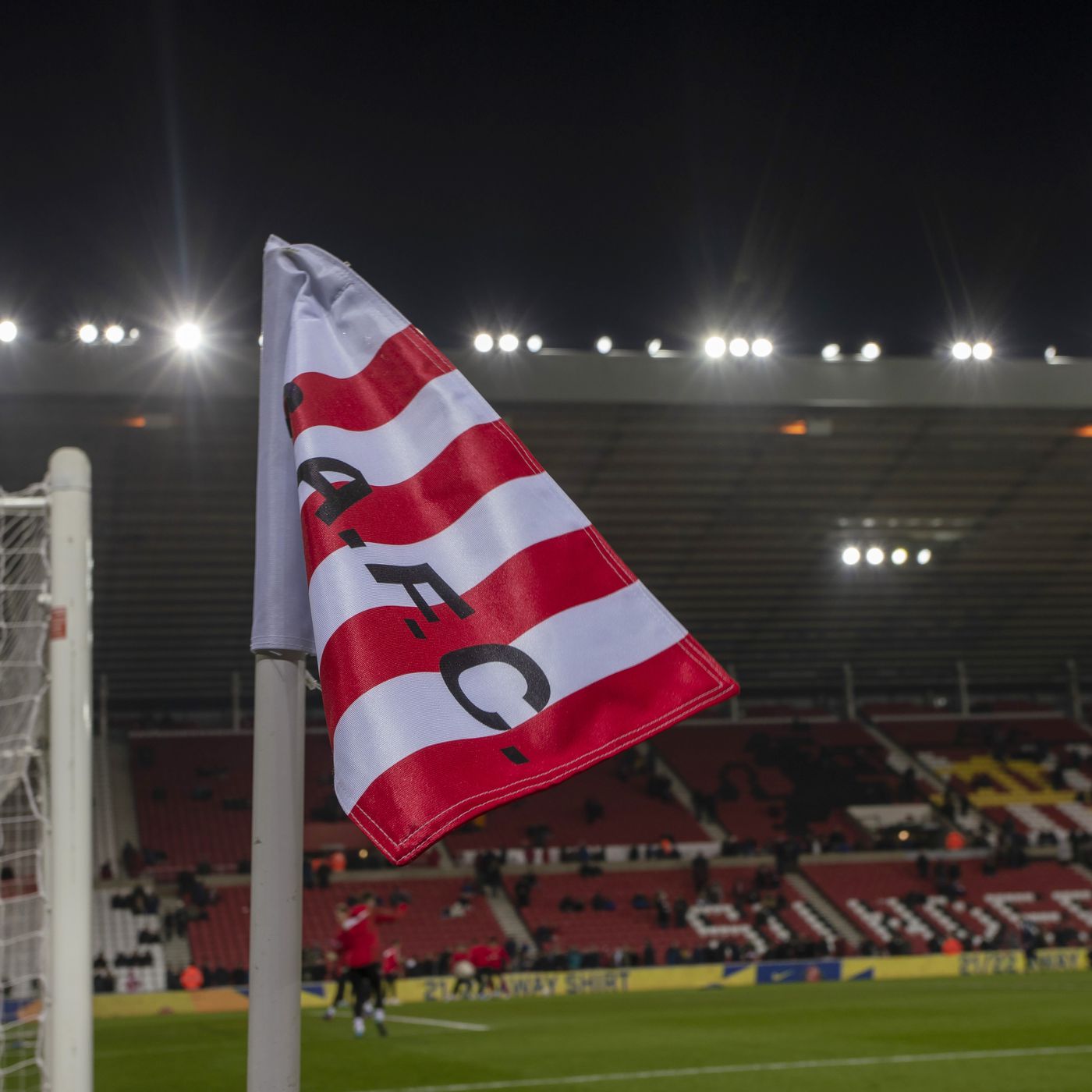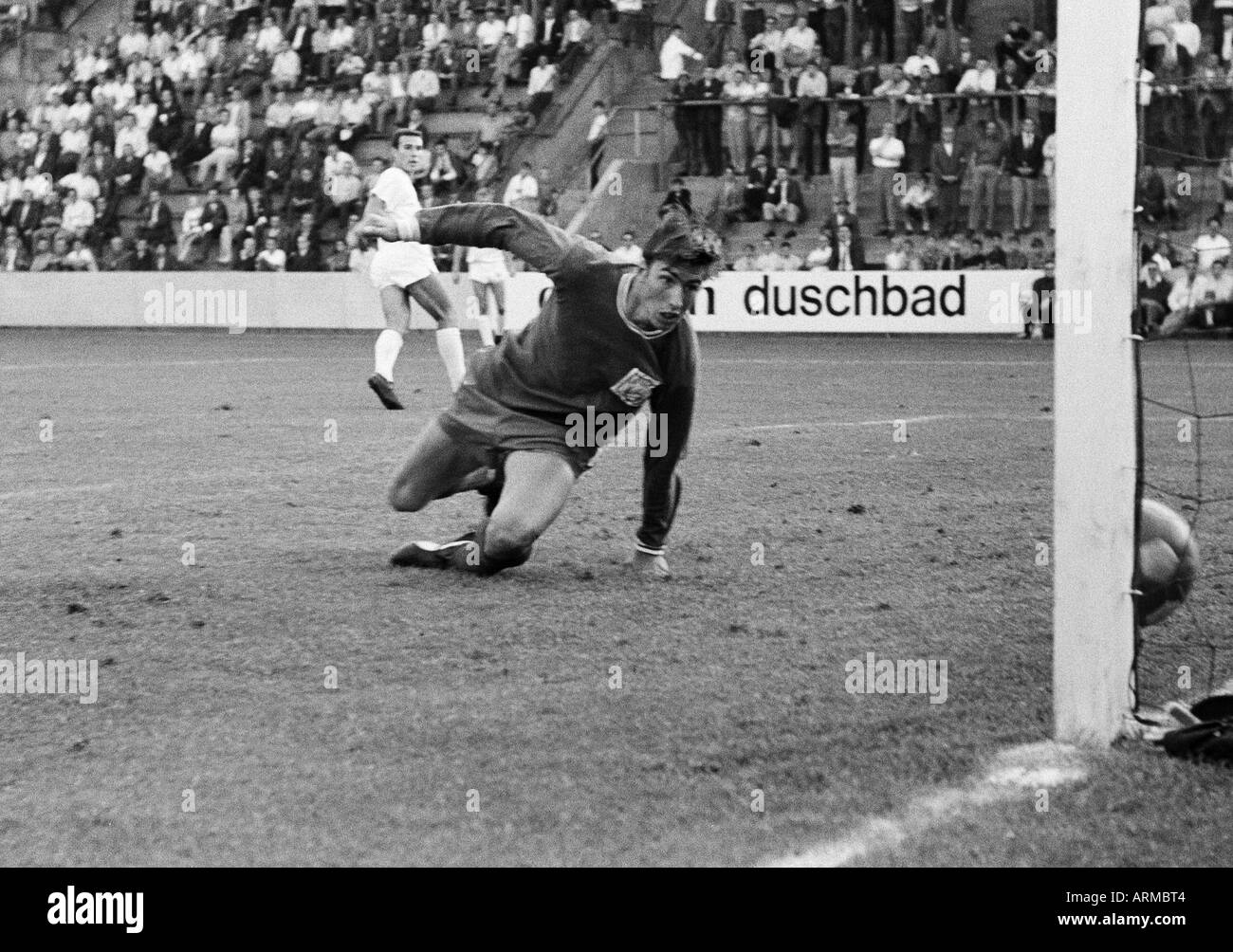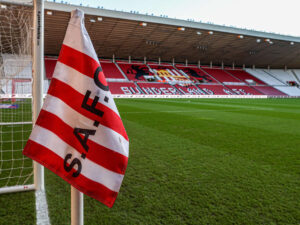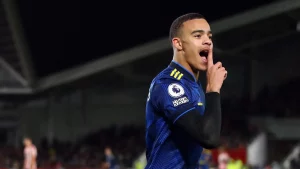
The tragic story of Sunderland’s Jimmy Thorpe, who died playing for the club he loved
107 years ago today, boyhood Sunderland fan Jimmy Thorpe was born in Jarrow. His story is a sad one, however, as he died from injuries sustained playing for the Lads in a game with Chelsea. Here’s his tragic story.
The date was February 1, 1936. Sunderland captain Raich Carter leads his team out at Roker Park for a routine First Division encounter against Chelsea. He was flanked by twenty-two-year-old goalie Jimmy Thorpe, a talented kid regarded as one of the best in the game one day. Carter would go on to become the youngest captain in First Division history, while Thorpe unfortunately died four days later as a result of injuries incurred during the game.
Thorpe made several outstanding saves against a talented Chelsea frontline that included Joe Bambrick, Bill Barraclough, and Harry Burgess. However, he missed an easy rebound off the bar in the second half, allowing Bambrick’s shot to comfortably roll across the line. Just two minutes later, Sunderland centre-half Bert Johnston passed the ball back to Thorpe, who made another crucial error and easily lost the ball to Bambrick amid a rough tangle of bodies as the latter barged into Thorpe, stole the ball, and promptly scored, leveling the game at 3-3.

Thorpe was in the center of possibly the most contentious moment of the game prior to these unusual errors. After winning the ball in the penalty area, he fell to the ground to protect it from three onrushing Chelsea players, who continued to kick-out at Thorpe’s head, neck, and upper-body for an extended period of time until a swath of Sunderland defenders arrived and interfered. Notably, the referee, Mr. H.S. Warr, was more than willing to let the assault continue.
According to sources, Thorpe was visibly confused after that and even had to repeatedly pause and lean on his goalpost to get himself back on track. Thorpe should have been removed from the game right away; the Chelsea players should never have been let to surround him in that way. Instead, they persisted.

Following the game, The Newcastle Journal made the unsettlingly prescient claim that this was a “tragic moment for Thorpe.” The author asserted later in the same paper;
The crowd did not particularly like the referee either, and the second-half climax might have been avoided if the official had been more tough in stopping violent play, especially on Chelsea’s part.
The Journal writer refers to the violent play against Thorpe and the dismissal of Chelsea right-half Billy Mitchell as the “second-half climax.” The Northern Irishman was one of many Chelsea players who received a rough play warning from the referee in the first half, then in the second half, he received a red card for an appalling tackle on Sunderland left-half Alex Hastings. Just five minutes had passed since the incident involving Thorpe and was greeted by the normal snark and raucous booing of the Roker audience.

Thorpe made such out-of-character errors while seeming confused and even, miraculously, managed to play the full ninety minutes. After the game, Mr. Warr went with two policemen to shield him from the angry spectators outside while Thorpe exited nursing a lump on his forehead.
After the game, Thorpe fainted at his Sunderland house and spent the whole weekend bedridden and critically unwell. By this time, he had also suffered a significant head wound, bulging eye socket, and severely bruised face. This was a direct result of the hard kicks the Chelsea forward line gave him during their high press and rough play, which was done not to actually hurt Sunderland, but rather to pressurize and bother them. On Monday, February 3, he was admitted to the Monkwearmouth and Southwick Hospital. and eventually, tragically succumbed to his injuries on Wednesday, 5 February aged just twenty-two.
Carter recalled the events of the tragic game in his autobiography;
During our match against Chelsea there was a lot of play in our goalmouth and I heard that Jimmy had been bumped about a bit. I remember most distinctly that when we left the ground Jimmy appeared to be all right and made no complaint of feeling ill. It was a terrible shock to us when we reported as usual for training on the following Wednesday and learnt that he was dead.
This is by no means ignorance from Carter, even today head injuries are still taken lightly within football, despite numerous ground-breaking concussion research, rules and regulations being utilised in other sports. Contemporary newspaper reports likewise did not foresee the problems that arose from the altercation, and focussed upon his mistakes;
Atrocious goalkeeping cost Sunderland a point… Thorpe has shown some excellent goalkeeping this season, but he seldom satisfies me when the ball is crossed. On Saturday his failures had an entirely different origin, and I can come to no other conclusion than that the third goal to Chelsea was due to ‘wind up’ when he saw Bambrick running up.
This report in the Sunderland Echo was typical of many at the time, and the correspondent was forced to apologise on the 10th of February, following the goalkeeper’s death;
I know many who would give anything now to feel that they had not uttered the harsh words they spoke in the heat of the moment regarding Jimmy Thorpe’s failure to prevent the two Chelsea goals in the second half last week. They did not know that the man whose failures were cursed was actually a hero to carry on at all. Neither did I know, and I confess now that I myself would give anything to have been in the position to have known and never to have given pen to what I wrote. I do not think he was able to read them and if this is so I am glad that his last days were not saddened by anything I had written because I know he was sensitive about his job.
Unfortunately, such medical matters were considered alien to the footballing world of the mid-1930s, but this tragic event did at least force the FA to better protect their goalkeepers. An inquest that was held at Sunderland Central Police Station on 7 February stated that the match was the most violent on an English pitch and that Thorpe already had control of the ball tucked into his chest before the illegal kicks came. However, no evidence was ever passed forwards by the referee, FA or any Chelsea player. The pathologist on-duty ruled post-mortem that;
The rough usage I have heard described would, in my opinion, tend to precipitate an attack of a diabetic coma.
However, he officially recorded the cause of death as a diabetes attack which precipitated serious heart failure, but did urge the FA to;
Instruct referees that they must exercise stricter control over the players.
The FA responded in-kind, on 17 February setting up a commission to inquire into Thorpe’s death. However, inconceivably, the commission found Sunderland culpable for fielding a player in poor health, as he was diagnosed with diabetes almost two years before the incident and even more incredulously, completely exonerated both the referee and offending Chelsea players. The FA did not consult nor ask for any evidence whatsoever from neither Sunderland’s club doctor nor the Central Police Station pathologist. There was no medical ignorance whatsoever from Sunderland. Thorpe played in 52 consecutive games for the club, had never received medical treatment by the club – and none at all from the club nor outside professionals in the two years that he had been diagnosed diabetic, if the club doctor had merely been consulted he could attest to this. It is common knowledge players can play with diabetes, and with the necessary protection, he would have played many more games for the club.
Sunderland was admonished and thus incensed at the outcome; after two poorly executed inquests into the incident, in which neither side – separated at polar opposites of the country – consulted the other, the FA merely blamed the most convenient victim; the club itself. Thorpe still died as a result of the rough play, yet they prefered to blame the very club that the young goalkeeper had played for instead of actually looking deeper into the heart of the issue. The whole non-event was essentially a whitewash in which the referee was completely exonerated from any blame whatsoever.
The FA in the commission did push for the need to outlaw any raised foot toward a goalkeeper in possession of the ball. In April, the Referees’ Committee recommended the following motion to the FA Council Rules Revision Committee;
Although a player is entitled to charge the goalkeeper when the latter is in possession of the ball (i.e. holding the ball) it is not permissible to kick or attempt to kick the ball or man under any such circumstances. The use of the foot amounts to violent conduct and should be dealt with by the referee accordingly.
The FA Council approved the motion on Friday, 24 April, and thus, the rules were changed forever. Yet, to this day the club has never been cleared of the charges, and within the annals of the FA are technically still at fault for Thorpe’s death, while the referee and opposing players were never suspended nor even investigated whatsoever.
The stopper played 139 games in total for Sunderland, as his career was tragically cut short. Without a doubt, he would have won a First Division medal at the end of the year, and an FA Cup winners medal just a year later ahead of a long and successful career. There were even murmurs at the time of an impending England call-up. He is still a legend at Sunderland, but one who was left in an unmarked grave without even a headstone in Jarrow Cemetery until 2011 when numerous Sunderland fans including Thorpe’s family, football historian John Kelters and local historian Bill Fisher successfully led a nine-year battle to both erect a headstone and enter his name into football’s hall of fame. Meanwhile, the man who replaced him, Johnny Mapson, would win that FA Cup winners medal, play for the club until 1954 and outlive the rest of his FA Cup-winning squad, eventually dying at home in Washington in 1999 of natural causes.
Thorpe is another in the Duncan Edwards category of young, promising footballers with the world at their feet who tragically had their long and irrevocably successful prospective careers stolen away from them. He has, however, been memorialised in recent years by the club, both at the Stadium of Light in person and on their social media account.
In 2011, Sunderland played Chelsea at the SoL on the 75th anniversary of Thorpe’s death, and in honour of the fallen hero both goalkeepers, Craig Gordon and Petr Cech, wore black armbands. Although his loss was beyond tragic, it was also the watershed moment in the protection of goalkeepers, and rather poignant that Cech played at the time, for whom the story will have particular resonance after sustaining a fractured skull under pressure from Stephen Hunt, and has had to wear a protective cap ever since. Without Jimmy Thorpe’s accidental and tragic death, much more may have followed if not for the necessary change.
To this day, he is the only British footballer to ever die as a direct result of rough play during a football match. Jimmy Thorpe was our goalkeeping revolutionary. Yet, above all else, he was a father and gentleman. As such, on 7 May when the club held a celebratory dinner for the league victory, Thorpe’s widow, May, and three-year-old son, Ronnie, were invited and presented with Jimmy’s championship medal.
/cdn.vox-cdn.com/uploads/chorus_asset/file/9404945/Capture.PNG)
/cdn.vox-cdn.com/uploads/chorus_asset/file/9404755/sunderland_echo_back_page_03_03_36.JPG)







